Scholar Spotlight: Gráinne Sexton
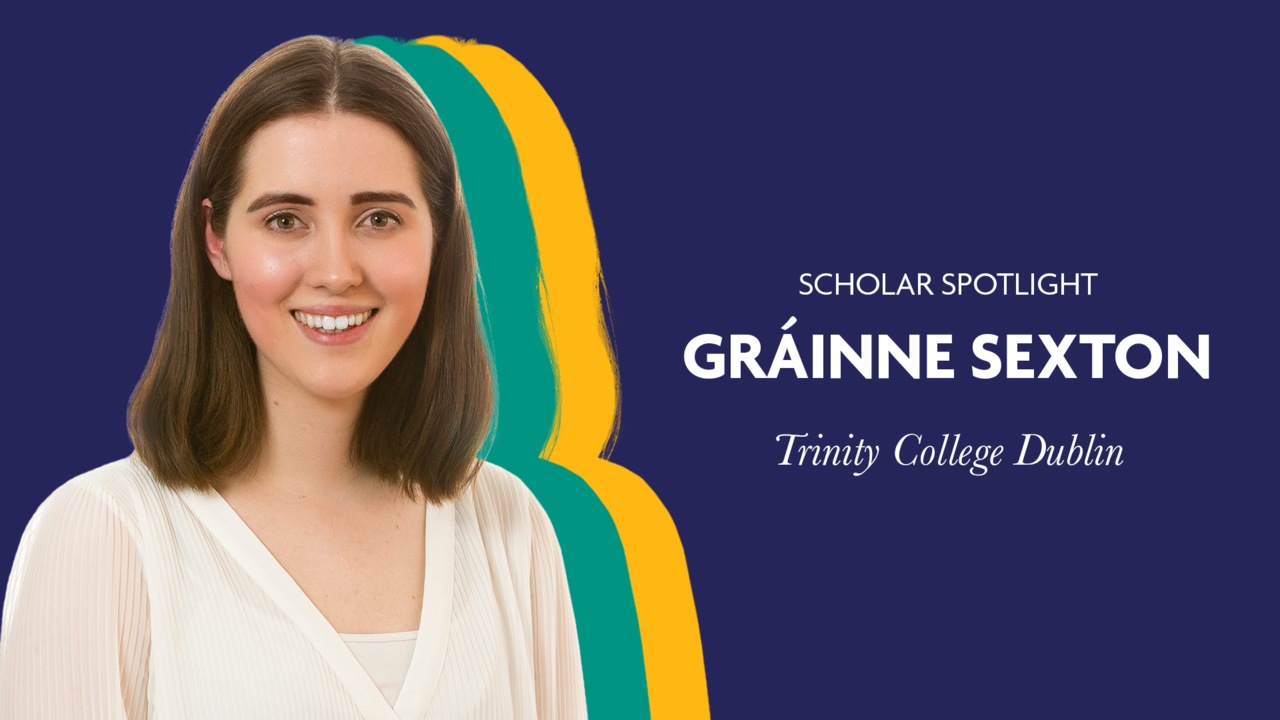
Gráinne Sexton, a Trinity College Dublin Laidlaw Scholar, on her research "'Tear down this wall’: Borders and Boundaries in the Native American Literature of Leslie Marmon Silko" and the importance of leadership that is grounded in humility and integrity.

Leslie Marmon Silko is one of a number of contemporary Native American authors who came to prominence as part of the Native American Renaissance – a movement which began at the end of the 1960s and sought to reclaim Indigenous American history and culture through literature. Central to many of Silko’s literary projects is the redefinition of borders and boundaries as in-between spaces that force the negotiation of political and cultural authority. In this sense, Silko is not only a writer but also a political and cultural activist.
My Laidlaw research sought to highlight the dangers of constructing unassailable boundaries in contemporary society by examining Silko’s novels, short stories, poetry, essays, and interviews. The project involved an exploration of borders from three perspectives:
- Geographic borders: Silko emphasises that Native American peoples are connected not by their national affiliation or location on either side of a border, but through their relationship to the land.
- The borders of identity: Silko argues that identity should be defined by how one understands one’s relation to the earth, rather than by one’s position in relation to the boundaries of the nation-state.
- Literary borders: Silko incorporates traditional Native American stories and myths into her work, thus reconfiguring the structural boundaries between Euro-American literary genres. Her non-linear narrative structure acts as witness to the ongoing injustices suffered by Native American communities, while also preserving centuries-old Indigenous knowledge and practice.
The goal of my research was to draw attention to a literature which argues that, even as they function as zones of exclusion and oppression in the modern world, borders and boundaries should be regarded as sites for transgression and transformation. Silko’s work powerfully articulates this revolutionary potential, and therefore offers a refreshing alternative attitude to the divisive nationalistic logic which dominates much contemporary political discourse.
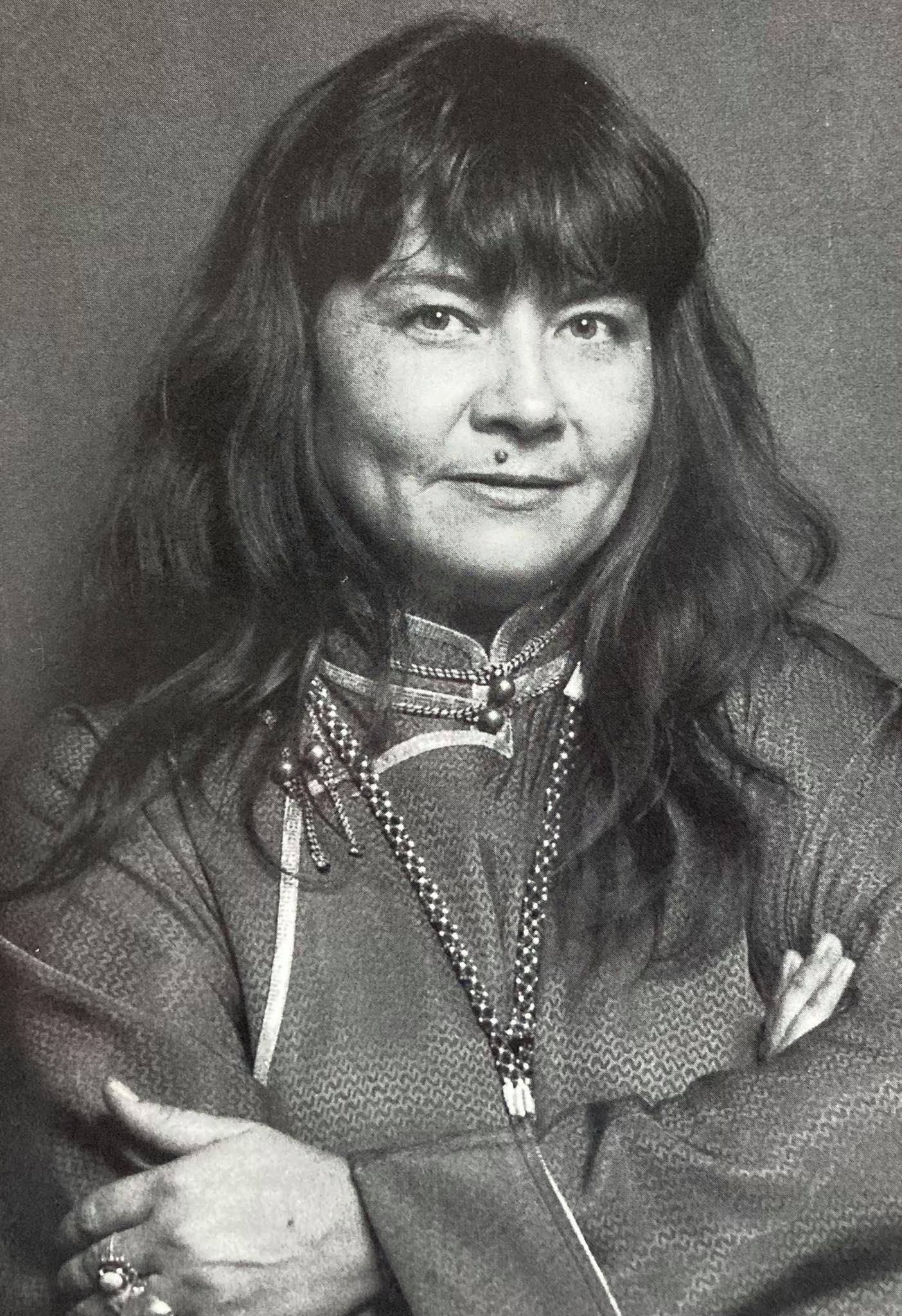
Where did your passion for this research originate?
I have always had a keen interest in the role that literature has to play in revealing issues of injustice or inequality. Native American writing initially piqued my interest as a form of expression which provides an insight into the experience of colonial oppression. Furthermore, I was intrigued by the techniques drawn upon by Native American authors to preserve Indigenous cultural traditions in their texts, especially while writing in the United States – a country where colonialism has never ended for Native peoples.
I first encountered the work of Leslie Marmon Silko in November 2018, a month which marked the halfway point of Donald Trump’s term as president. Around that time, much attention focused on the president’s pledge to build a wall at the U.S.-Mexican border. Across the water in Europe, Theresa May’s government was engaged in negotiations on the withdrawal of Britain from the European Union. The political ramifications of Brexit for Northern Ireland were at the fore of any attempt to negotiate an agreement and the potential for a ‘hard border’ – one which could provoke sectarian violence – seemed an urgent possibility.
In Silko, I discovered an author whose work challenges the legitimacy of borders and highlights the importance of embracing ‘borderland’ identities. My passion for this research thus originated from a desire to engage with a literature which speaks directly to the tensions and complexities of the modern political moment. Additionally, I sought to amplify the voice of a Native American writer who consistently communicates a politics of kindness, empathy, and justice.
What is the most memorable moment from your Laidlaw scholarship experience so far?
There have been many memorable moments throughout my Laidlaw experience – it is difficult to choose just one! All of the moments which have involved connection and collaboration with my Laidlaw peers, both at Trinity and across the international network, have been highlights for me.
I particularly enjoyed attending the Laidlaw Annual Conference at UCL in October 2019. It was wonderful to meet with students from across the world, to gain an insight into the innovative research being conducted at other universities, and to receive leadership advice from experts such as Professor Jim Berry.
Perhaps the standout moment for me was Kaitlin Fritz’s talk on leadership and entrepreneurship. As a student of English literature, much of my time is spent engaged in solitary study. My degree can, at times, feel detached from the material realities of modern society and I had previously viewed myself as a person who was not fully equipped with the range of skills needed to enact sustainable social change. Kaitlin’s talk completely changed that. I was inspired by her journey from arts student to educational entrepreneur, and felt empowered to emulate her determined and passionate approach to tackling complex problems. Afterwards, I felt more confident in my abilities to create a meaningful difference in the world.
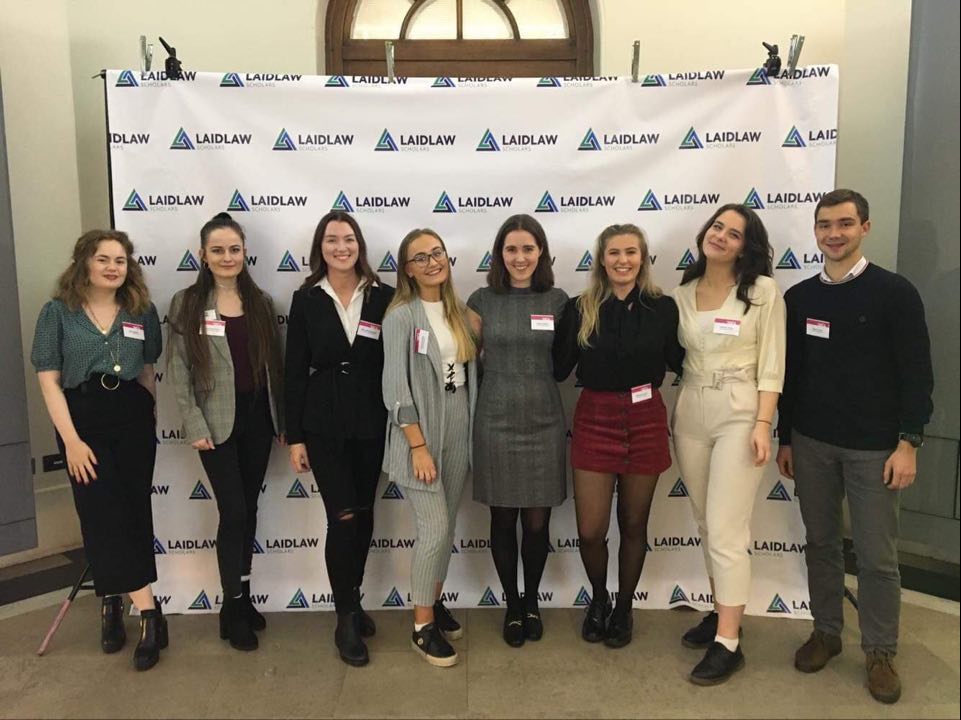
What is the biggest challenge you came across in your research and leadership journeys so far, and what have you learnt from it?
Prior to my participation in the Laidlaw Programme, I prided myself on my strong organisational skills and ability to plan meticulously. Over the course of my Laidlaw journey, however, I have been forced to become more flexible in my work approach, and to learn how to adapt readily to change.
My tendencies to plan and organise came under particular pressure during both summer research periods. Often there were instances when I failed to read everything I had intended, struggled to stick to my research schedule, and felt overwhelmed by the amount of information available. The training I received in the Laidlaw leadership sessions – particularly those which involved coping with ambivalence and uncertainty – really helped me to overcome my fear of ‘deviating from the plan’ and to become a person who is unafraid of taking risks. This newfound adaptability was especially helpful when the Covid-19 pandemic rolled round. My plans to visit the Silko archive at Yale were abandoned but, rather than viewing this as a major disruption, I took the opportunity to reflect on my research journey and figure out how I could reroute it.
Ultimately, I’ve realised that few aspects of life follow a coherent and clearly defined trajectory. I now understand that it takes courage and conviction to explore alternative trajectories, deviate from the plan, and embrace the unknown.
What does it mean for you to be a Laidlaw Scholar?
Being a Laidlaw Scholar means involving oneself with a community of students who share a commitment to understanding and improving society. Although Laidlaw Scholars come from a diverse range of backgrounds, we each recognise the value of interdisciplinary collaboration, and know that connecting with and understanding others leads to more empathetic leadership.
Being a Laidlaw Scholar also involves discomfort. Over the course of my Laidlaw journey, I have realised the necessity of moving beyond my comfort zone in order to explore and actualise my potential.
Finally, being a Laidlaw Scholar is about opportunity. It means making the most of the myriad opportunities available in the programme, while understanding that privilege and responsibility are central aspects of any opportunity. The opportunities I’ve enjoyed as a Scholar have imbued in me a profound awareness of how I can draw upon my privilege to stride out into the world and effect sustainable change.
Which particular leaders inspire you the most and why?
The Covid-19 pandemic has taught me that leadership does not necessarily involve grand gestures. When I think about the people who have inspired me most this year it is not politicians or public figures who spring to mind, but often those who quietly use their talents and skills to make some small difference in the lives of others. I most admire leaders who practise a ‘politics of empathy’, who are driven by the values of compassion, community, and care.
A person I particularly look up to is Kate Clanchy, a poet and a teacher of English whose students come predominantly from immigrant and socio-economically disadvantaged backgrounds. Clanchy has worked in state schools for almost thirty years and, throughout that time, has striven to nurture creative talent among her pupils by encouraging them to read and write poetry. For many of her students, Clanchy’s guidance has led them to recognise the ways in which poetry can offer comfort, articulate emotion, and promote intercultural understanding. She shows an unabashed belief in the potential of every child, especially those who are underrepresented. Through a leadership style that is grounded in humility and integrity, Clanchy has succeeded in amplifying the voices of young people who are often rendered silent or invisible by mainstream society.
Describe a scene from the future you strive to create:
I strive to create a future where wealth and resources are distributed equally across the globe, where nobody feels oppressed or excluded, and where all people have access to the opportunities necessary to fulfil their potential. Although I am aware of how idealistic my vision may sound, I fundamentally believe that it is one which can be actualised, even if that does not occur in my lifetime. In efforts to achieve this vision, I follow the mantra of ‘be the change you want to see in the world.’ I attempt to speak out against instances of injustice; I educate myself on the experiences and insights of those who are less visible and less privileged than me; and I continually reflect on how I can do and be better.
Quick-fire Questions
📺 Currently binging: The Queen’s Gambit

🎵 My quarantine anthem: Graceland by Paul Simon
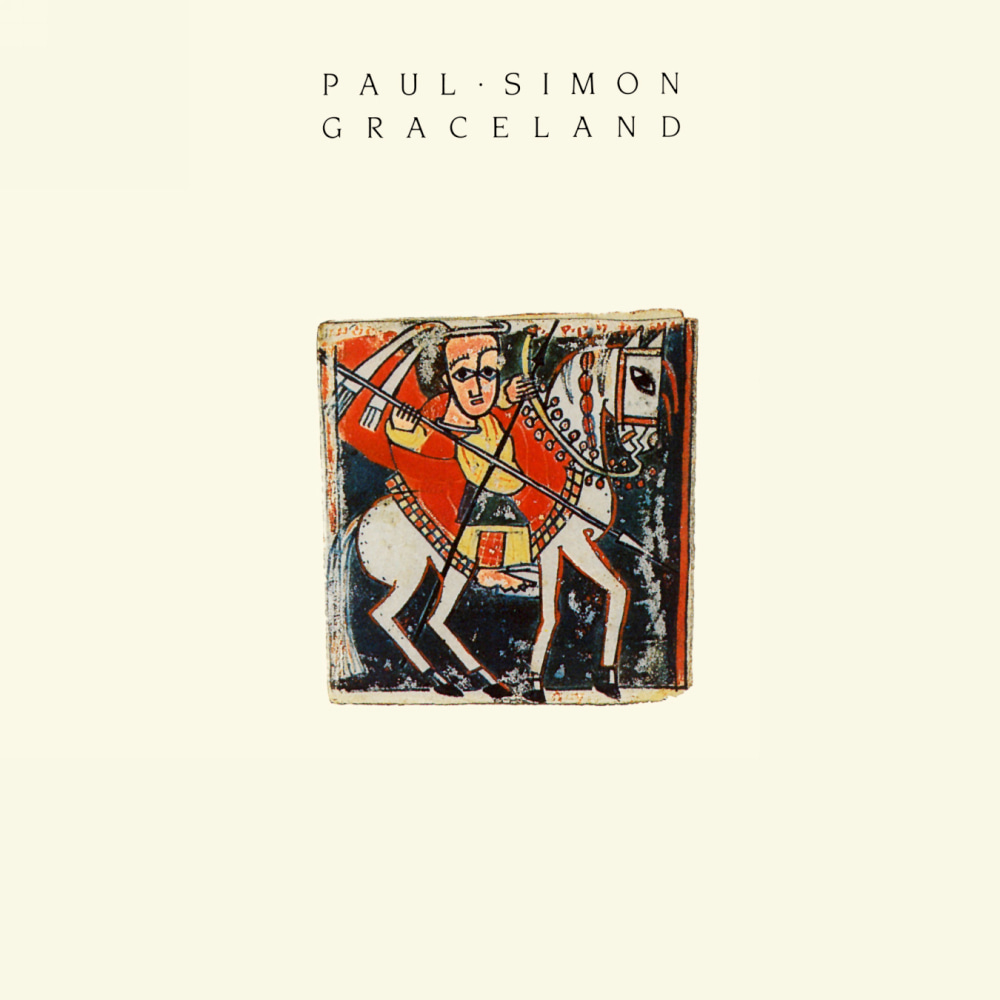
📚 My top book recommendations: A book which never fails to catalyse reflection is Leslie Marmon Silko’s Ceremony.
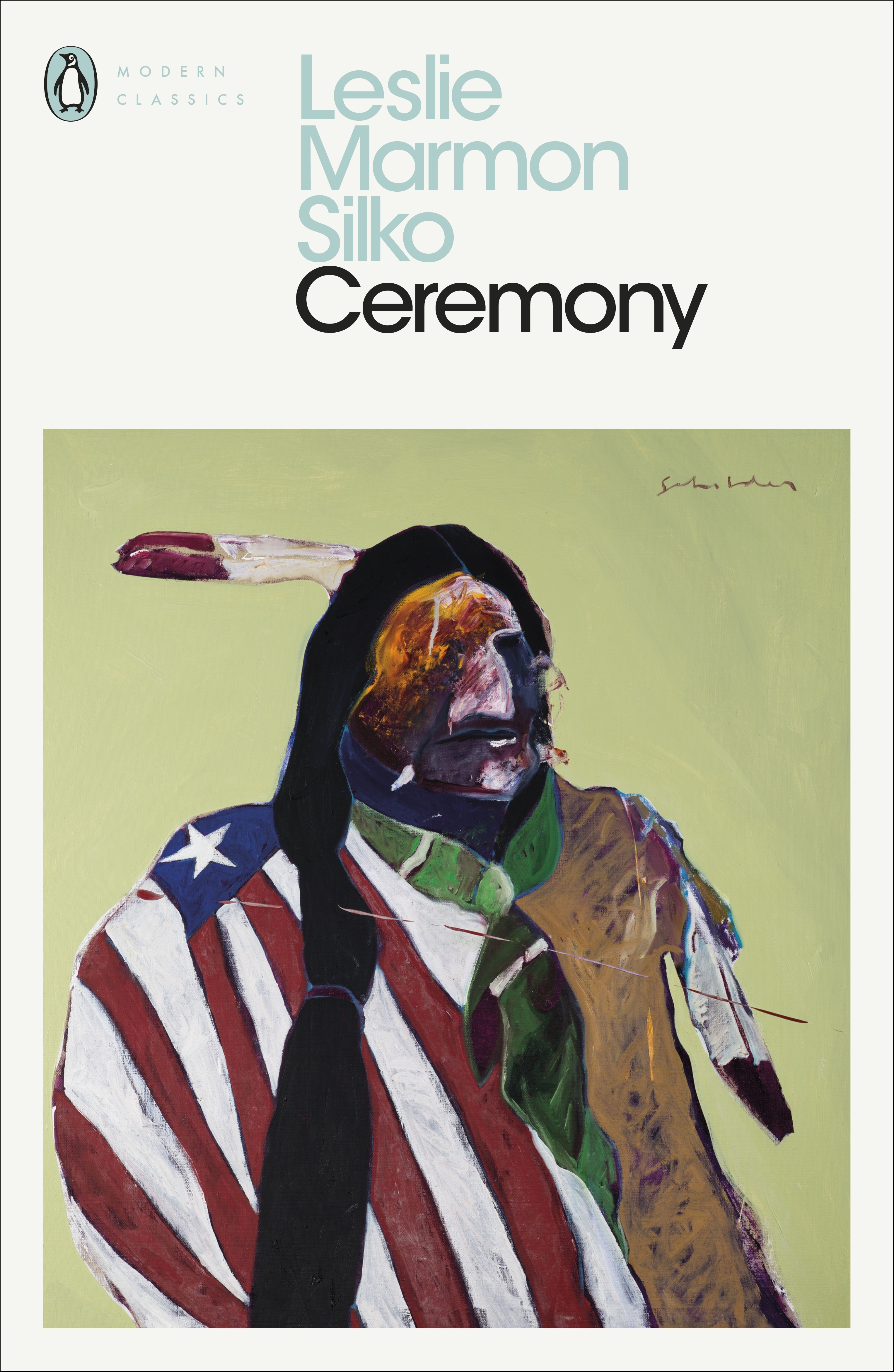
For sharp insights into the social and political currents running beneath contemporary society, I also love Ali Smith’s ‘Seasonal Quartet’ series: Autumn, Winter, Spring, and Summer.
.jpg)
🎧 Podcast obsessions: How to Fail With Elizabeth Day. I especially recommend the two episodes with philosopher Alain de Botton.
🌈 Something that made me feel joy recently: This pandemic has affirmed to me the necessity of taking joy in small things – a phone call with a friend, a particularly uplifting poem, unexpected sunshine on a winter’s day.
❤️ A cause you should check out:
Native American communities, like many minority and lower-income groups, have been disproportionately affected by the Covid-19 crisis. Native communities also have high numbers of elderly, diabetic, asthmatic and cancer-afflicted individuals, and are therefore at greater risk of being devastated by Covid-19. Lack of access to food, water, PPE and other essential medical equipment also means that Native American communities are currently struggling to weather the effects of the pandemic.
The First Nations Development Institute is responding to the emergency needs of American Indian, Alaska Native, and Native Hawaiian communities through a Covid-19 Emergency Response Fund. This fund is designed to distribute funds efficiently and swiftly to Native non-profit organisations and tribal programmes. If you have the financial means, please check out the Response Fund and consider making a donation. At a time when Indigenous communities all over the world are acutely suffering the effects of their continued marginalisation and oppression, I believe that it is the responsibility of those of us with greater privilege to constructively offer support.
Connect with Gráinne on Twitter and LinkedIn.
Gráinne is a Laidlaw Undergraduate Research and Leadership Scholar at Trinity College Dublin. The programme uniquely funds both undergraduate research and leadership development, and aims to develop a new generation of leaders who are skilled researchers, embrace data-based decision making, and believe it is a moral imperative to lead with integrity.
Find out more about the Laidlaw Undergraduate Research and Leadership Scholarship.
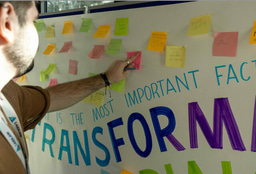
![[CLOSED] Apply to Become an Advisory Board Member](https://images.zapnito.com/cdn-cgi/image/metadata=copyright,format=auto,quality=95,width=256,height=256,fit=scale-down/https://images.zapnito.com/users/290982/posters/b494a8a5-ced0-489b-9b26-6c4da797bedf_medium.jpeg)


Please sign in
If you are a registered user on Laidlaw Scholars Network, please sign in